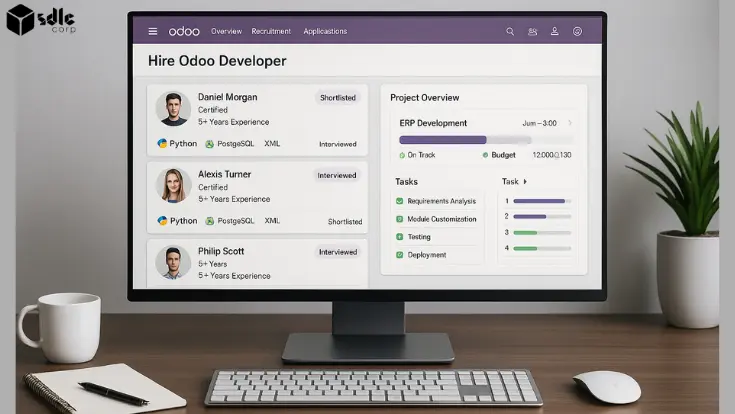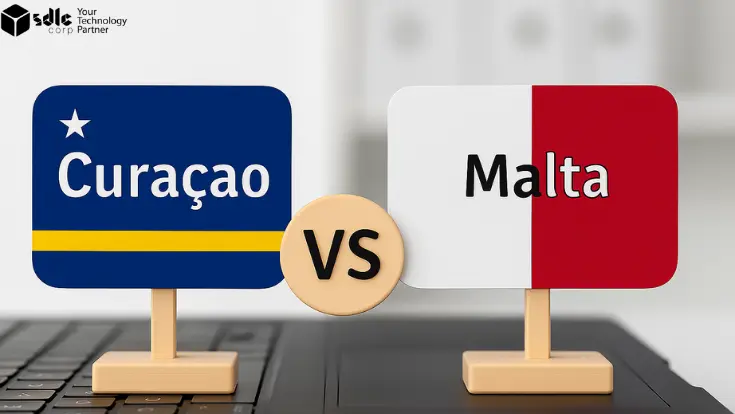Introduction
Europe remains one of the most trusted and regulated regions for online gambling. Whether you want to launch an online casino, operate a sports betting site, or provide B2B gaming software, securing the proper European gambling license is essential.
This guide explains how to apply for a gambling license in Europe, the costs, timelines, and compliance requirements. You’ll also learn about key jurisdictions, technology standards, and strategic considerations to avoid costly mistakes.
What Is a Gambling License in Europe?
A gambling license is an official authorization from a recognized regulatory body that legally permits you to operate gaming services.
In Europe, a license demonstrates:
Credibility and consumer protection, building trust with players
Regulatory compliance with EU laws, AML (Anti-Money Laundering) directives, and data protection (GDPR)
Access to banks and payment processors, many of which require a valid license
Market legitimacy critical for long-term success
Popular European online casino licenses include approvals from the Malta Gaming Authority, Gibraltar Regulatory Authority, and Isle of Man Gambling Supervision Commission.
Step 1: Understand the Legal Landscape in Europe

Unlike some jurisdictions with a single framework, Europe has a patchwork of regulations. Each country or territory issues its own online gambling license Europe, with distinct requirements and processes.
Key regulators include:
Malta Gaming Authority (MGA): Known for high standards and tax benefits.
Gibraltar Regulatory Authority: Favored for sports betting and casino licensing.
Isle of Man Gambling Supervision Commission: Trusted for transparency and low tax rates.
Alderney Gambling Control Commission: Offers a balanced environment for iGaming businesses.
Sweden and Spain: Require national licenses to operate within their territories.
Before you apply, it’s essential to study the legal framework of each jurisdiction to avoid costly mistakes.
Step 2: Decide the Type of Game You Want to Offer

Your licensing requirements depend on your gaming products:
Casino Games: Slots, table games, live dealer
Sports Betting: Fixed odds, in-play
Poker: Tournaments, cash games
Lottery & Bingo
Skill-Based or Hybrid Games
License classes differ in each country. For example:
MGA issues Class 1–4 licenses (casino, betting, poker, B2B supply)
Germany licenses slots separately from sports betting
France prohibits online casino games altogether
Carefully define your offering before you apply.
Step 3: Choose the Right European Jurisdiction for Licensing

Selecting the right jurisdiction impacts costs, taxation, and player trust. Here’s an overview of the most reputable options:
| Jurisdiction | Setup Time | Approx. Cost | Annual Fees | Taxation |
|---|---|---|---|---|
| Malta | 4–6 months | €25,000–€40,000 | From €25,000 | 5% GGR |
| Gibraltar | 4–6 months | €30,000–€50,000 | ~€100,000 | 1% turnover |
| Isle of Man | 3–6 months | €40,000–€60,000 | ~€35,000 | 1.5% GGR |
| Alderney | 3–5 months | €35,000–€50,000 | ~€35,000 | No VAT |
| Sweden | 6–9 months | €50,000–€80,000 | High | 18% GGR |
| Spain | 6–9 months | €80,000+ | High | 20% GGR |
| Germany | 6–9 months | €70,000+ | High | 5.3% turnover tax |
| France | 6–9 months | €60,000+ | High | 33% GGR |
| Italy | 6–9 months | €80,000+ | High | Variable |
These jurisdictions differ in European gambling license requirements and application complexity. For example, Malta is known for relatively streamlined procedures, while Sweden and Spain have stricter advertising and player protection rules.
Step 4: Register a Business Entity in Europe

Every regulator requires a locally registered company. Typically you’ll need:
A registered office
Resident directors or representatives
A corporate bank account
Proof of capital adequacy
For example:
Malta: One local director required
Gibraltar: Local presence mandatory
Germany: Requires German tax registration and responsible person
Step 5: Prepare Your License Application Package

A complete application package is essential for success. Regulators will ask for:
Detailed Business Plan: Revenue model, marketing strategy, target markets.
AML & KYC Policies: Procedures to prevent money laundering and verify players.
Technical Documentation: Platform architecture, RNG certification, cybersecurity measures.
Financial Statements: Capital adequacy and shareholder information.
Responsible Gambling Measures: Self-exclusion tools and problem gambling protocols.
Submitting a clear and thorough package increases your chance of approval and reduces processing time.
Step 6: Submit Your Application to the Appropriate European Authority

Once prepared, you must file your application with the regulator. This process includes:
Online submission portals (e.g., Malta Gaming Authority’s e-licensing system)
Physical copies of certified documents
Application fees paid upfront
Authorities typically conduct a preliminary review, followed by detailed assessments and requests for clarification.
Step 7: Pay the Application & Licensing Fees

Gambling license costs in Europe vary by jurisdiction and type of gaming activity. Fees generally include:
Application Fees: Non-refundable, ranging from €2,000 to €6,000.
Annual License Fees: From €25,000 to over €100,000, depending on scale and jurisdiction.
Gaming Tax: Usually calculated on gross gaming revenue (GGR).
Compliance Costs: Software certification, audits, and legal advisory fees.
Be sure to budget realistically for both setup and ongoing obligations.
Step 8: Undergo Compliance, Technical & Background Checks

After submission, regulators conduct rigorous assessments. You’ll undergo:
Personal Background Checks: For directors, owners, and key staff.
Financial Due Diligence: Proof of funding and clean financial history.
Software Certification: Testing of your gaming platform by accredited labs.
AML/KYC Review: Verification of procedures to prevent fraud and money laundering.
Meeting all these requirements is essential for securing your European gaming license.
Step 9: Receive the Gambling License

When your application is approved, the regulator issues your license, typically including:
A unique license number and certificate
Authorization to operate specified gambling products
Conditions and reporting obligations
Displaying your license seal on your website builds trust with European players and demonstrates compliance with EU gambling regulations.
Step 10: Maintain Ongoing Legal & Operational Compliance

Your responsibilities do not end with approval. To retain your gambling license Europe, you must:
Submit annual reports and financial statements
Undergo periodic software and security audits
Maintain up-to-date AML and responsible gaming policies
Renew your license on time
Failing to meet these obligations can result in fines, suspension, or revocation.
Receive expert guidance at every stage of your gaming license journey from documentation to approval. Our legal and compliance specialists make the process seamless across top jurisdictions. Need assistance? Talk to our team
International Comparison: Why Europe?
You may be wondering why operators often prefer Europe over other jurisdictions like Curacao, Kahnawake, or the Philippines (PAGCOR).
Here’s why:
- Reputation: European gambling licenses carry more weight with banks and players.
- Compliance: While stricter, the framework ensures long-term stability.
- Market Access: Many European countries only allow operators with an EU license.
- Consumer Protection: Strong safeguards promote trust and responsible play.
Tips to Get Your European Gambling License Faster
- Prepare all documents meticulously and submit them together.
- Hire professionals who specialize in European gambling license applications.
- Use pre-certified gaming platforms to avoid delays.
- Choose a jurisdiction suited to your product, budget, and target markets.
Future of Gambling in Europe
Several trends will shape the future of the industry:
Tighter Regulations: Enhanced focus on AML compliance and advertising restrictions.
Crypto Integration: Regulatory frameworks are evolving to address digital currencies.
Responsible Gambling Initiatives: New tools to prevent problem gambling.
Cross-Border Collaboration: Regulators sharing data to combat fraud.
Staying informed and agile will be crucial to long-term success.
Also Read: How to Start Online Casino in Europe?
Conclusion: Your Gateway to Europe’s Gambling Market
Securing a European gambling license is a critical step toward building a reputable, compliant iGaming business. From choosing the right jurisdiction to maintaining operational standards, every stage requires careful planning and expertise.
With the right preparation, you can join the ranks of trusted operators and tap into Europe’s vibrant online gambling market.
Ready to take the next step? Talk to our licensing specialists today and discover how we can help you launch with confidence.
FAQ's
How long does it take to get a gambling license in Europe?
The timeline varies by jurisdiction. For example, a Malta gaming license typically takes 4–6 months, while Sweden or Spain may require up to 9 months due to stricter reviews and national regulations.
What is the cost of a European gambling license?
Costs depend on the country and business size. Expect €25,000–€100,000 in setup and annual fees, plus gaming taxes based on gross revenue. Malta and Gibraltar are among the more cost-effective options compared to Sweden or Spain.
Can one European gambling license cover all EU countries?
No, each country has its own licensing requirements. While a Malta license offers broad market acceptance, some nations like Sweden and Spain require separate national licenses to target local players.
What types of games can I operate under a European license?
You can license online casino games, sports betting, poker, bingo, lotteries, and skill-based games. Be sure to specify the categories in your application to avoid legal limitations later.
Do I need a company registered in Europe to get a license?
Yes, you must incorporate a legal entity in the jurisdiction where you apply. For example, a Malta gaming license requires a Maltese company with a local registered office and at least one resident director.
What happens if I don’t comply with regulations after getting a license?
Failing to maintain compliance such as missing audits, ignoring AML policies, or mishandling player funds can lead to heavy fines, license suspension, or revocation. Ongoing compliance is mandatory in all European jurisdictions.


















